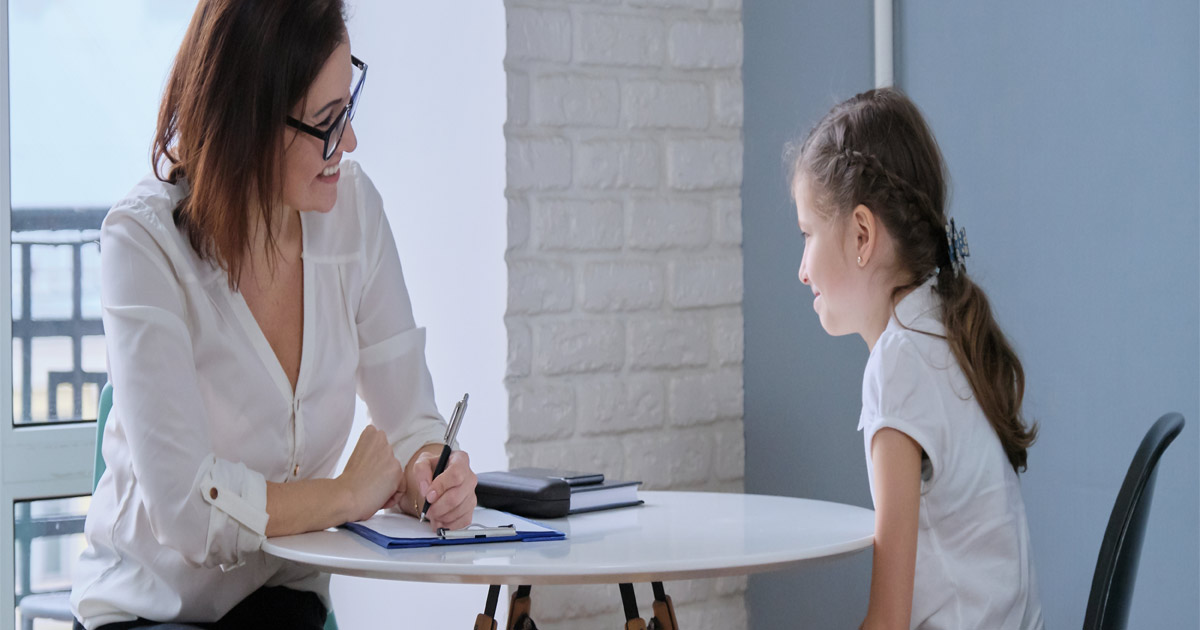A guardian ad litem (GAL) is an advocate appointed by the court to act on behalf of a child during the duration of a lawsuit involving child custody disputes. GALs are sometimes used in high-conflict child custody cases, though less commonly in New Jersey than in other states. GALs do not take care of a child’s day-to-day needs as do legal guardians. Rather, they are paid to be the child’s voice in legal proceedings in which the child may be too young or otherwise unable to advocate for themselves.
What is the Difference Between a GAL and a Law Guardian?
New Jersey law distinguishes between a GAL and a law guardian, or court-appointed counsel. The two roles may seem similar, but they are actually quite different. A law guardian must be an attorney admitted to practice in New Jersey. The law guardian’s role is to protect the child’s interests and help them express their wishes to the court. In other words, the law guardian is the child’s attorney. Any child who is the subject of child abuse, child neglect, or termination of parental rights must be appointed a law guardian. As court-appointed counsel, a law guardian takes an active part in child custody hearings, which may include calling and cross-examining witnesses.
In contrast to that, the GAL’s role is strictly to provide recommendations to the court. There is no legal mandate to appoint a GAL. Either parent may request a GAL; however, many do not. A GAL may be a social worker or mental health professional. The GAL may also be an attorney, but not necessarily. The GAL acts as an expert witness of sorts, and the court ordinarily appoints a GAL who possesses expertise in the appropriate areas. GALs serve at their own discretion; they may choose to consent or decline to serve. They typically remain in service until the divorce, civil union, or domestic partnership is legally dissolved. The GAL also earns a salary at a specified hourly rate approved by the court.
In New Jersey, a GAL is not the child’s attorney and does not directly represent the child. Instead, the GAL is charged with representing the child’s best interests, and his or her services are to the court on behalf of the child. A GAL may be appointed by the court, either on its own motion or at the request of either parent, in any court case where custody, visitation, or parenting time are contested.
Responsibilities of a GAL
According to New Jersey Court Rule 5:8B, the GAL’s job is to investigate and then make recommendations to the judge about custody and visitation. The GAL makes recommendations to the court based on the following:
- Interviews with the children and parents
- Interviews with other people with relevant information, such as teachers, social workers, friends, and family
- Documentary evidence, which may include reports from social workers, child psychologists, doctors, teachers, and so forth
- The parents’ lawyers’ arguments, as made to the GAL
- Discussions with the judge in the case
- Reports and recommendations of independent experts, such as child custody evaluators or family psychologists
- Assistance from a law guardian if the judge agrees to the appointment of one
- Other matters approved by the court
GALs are not used frequently in New Jersey child custody disputes. However, they can be of assistance in very high-conflict child custody fights, since their role is to serve as an independent voice for the interests of the child.
High-Conflict Child Custody Disputes
According to the American Bar Association (ABA), approximately 10 percent of all cases involving divorcing parents can be classified as high conflict. GALs may be called upon in these cases because the intensity of the conflict between the divorcing parents has consumed them to the point at which the child’s best interests are being neglected. The ABA has devoted resources to studying high-conflict custody disputes because the litigants consume a disproportionate amount of judicial resources. In addition, these disputes burden the children and typically fail to fully resolve the differences between the divorcing couple. Although no two child custody cases are the same, the ABA has identified characteristics that are commonly found in high-conflict child custody fights, including the following:
- Parental conflict continues despite litigation and court intervention
- One or more parties refuse to comply with court orders
- Allegations of parental alienating behaviors
- Litigation over custody and visitation rights are burdening the family
- The parents are preoccupied with their own identity reconstruction
- The parents are unable to move forward with their lives
- The parents do not keep their child’s needs at the forefront
Divorcing parents may be exposing their children to continued conflict and attempt to manipulate their behavior to retaliate against the other party. This makes it difficult for the children to speak for themselves. Under these circumstances, a GAL may be needed to advocate for the child during court proceedings and provide unbiased recommendations.
What are the Effects of High-Conflict Custody Disputes?
Studies indicate that most divorcing parents need about two years to adjust to changed relationships that result from a divorce. In many high-conflict cases, the conflict never fully resolves. The effects on the children may include the following:
- Feelings of depression and anxiety
- Lower academic performance
- Behavioral problems
- Difficulty concentrating
- Sleep disturbances
- Resentment toward authority
- An inability to adapt to new situations
Children develop a sense of security when they feel protected by their parents. Children exposed to continued parental conflict are at risk for losing that sense of security. It is a challenge for child custody lawyers, social workers, and the courts to offer counsel for divorcing parents to seek a better resolution for the family. GALs can play an important role in high-conflict custody disputes by offering non-biased recommendations that are in the best interest of the children.
Achieving Positive Outcomes in Custody Battles
When parents go through divorce, there must be a legal agreement regarding the following two aspects of child custody:
- Physical custody specifying where the children will live
- Legal custody outlining who will make decisions about the child’s health care, education, religious affiliation, and other major aspects of life
In the best circumstances, divorcing parents are able to come to an agreement about these issues. Physical custody typically revolves around geographic location, schools, proximity to friends, and other tangible factors. Legal custody involves more subjective matters. On both counts, the court will always seek to act in the best interests of the child. The court typically awards joint custody to both parents unless it has strong evidence to do otherwise. However, outcomes are not always ensured, as no two judges approach child custody matters in the same way. If the custody case involves intense conflict, the judge and legal representatives must spend more time to resolve the matter. This is where the unbiased findings of the GAL prove beneficial.
When conflict between divorcing parents is intense and continual, one step toward de-escalation is for parents to disengage from each other and work to maintain a healthy separation. Moving co-parenting into a more neutral zone can help de-escalate the conflict. This requires creating boundaries and limiting direct, in-person communication, as well as phone conversations. The ABA cites studies indicating that five to 10 percent of divorcing parents may never adjust to divorce. Reaching out to experienced professionals as soon as possible, including skilled child custody lawyers, can help improve the odds of achieving a positive outcome.
Moorestown Child Custody Lawyers at Stockton Family Law Help Divorcing Clients Make Informed Decisions
If you are anticipating a child custody dispute while dissolving your marriage with a spouse or domestic partner, contact the Moorestown child custody lawyers at Stockton Family Law as soon as possible. We can help you make the best possible decisions for your family. To arrange an initial consultation, contact us online or call 856-412-5052 today. Our offices are located in Moorestown, New Jersey and we are dedicated to helping individuals throughout South Jersey, including Mount Laurel, Burlington County, and Camden County.






